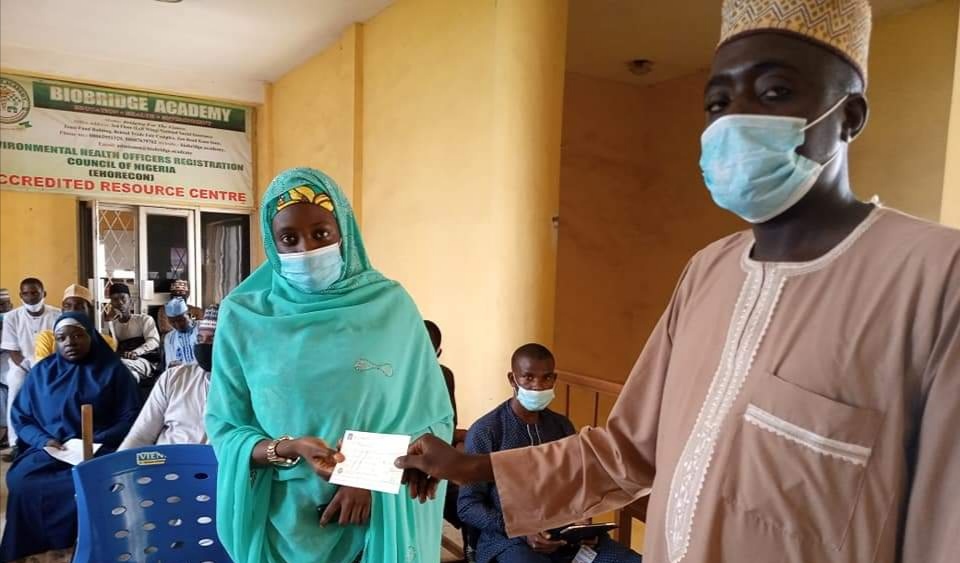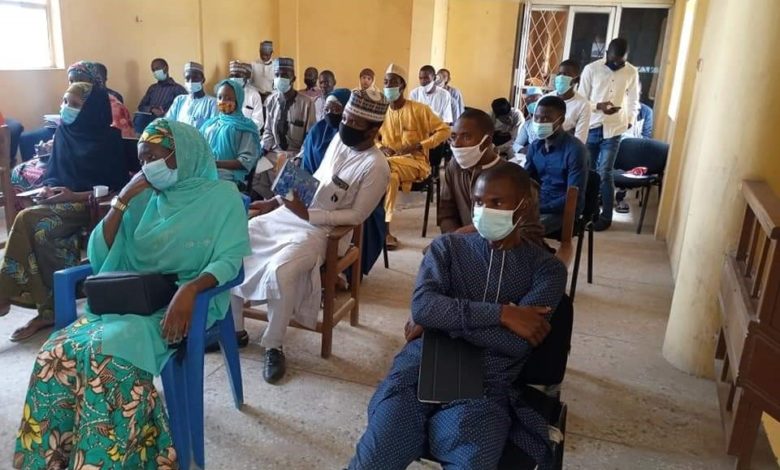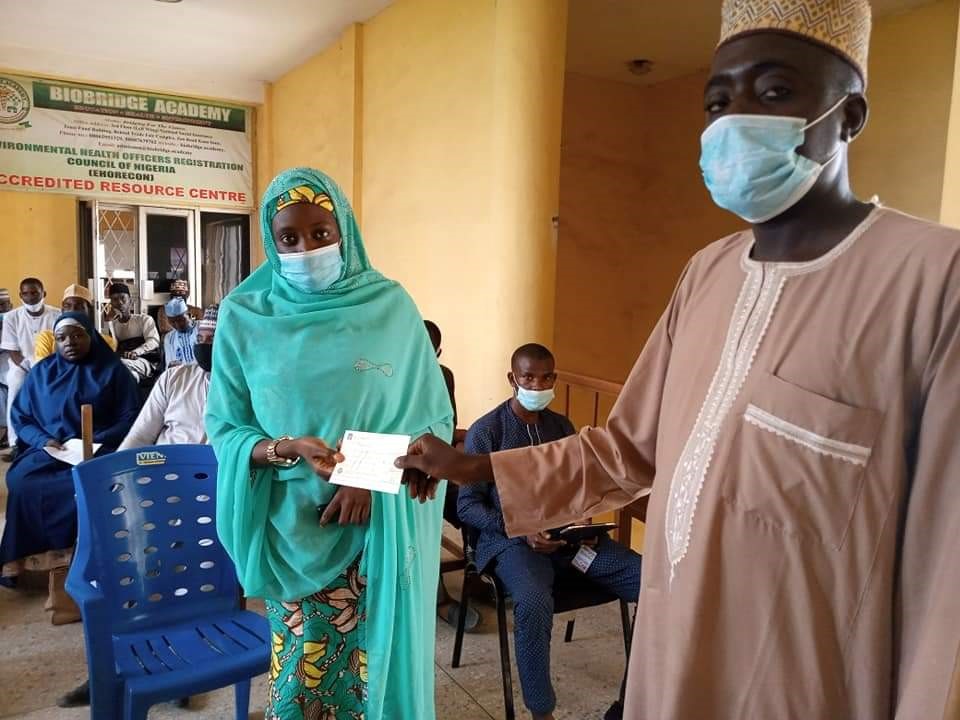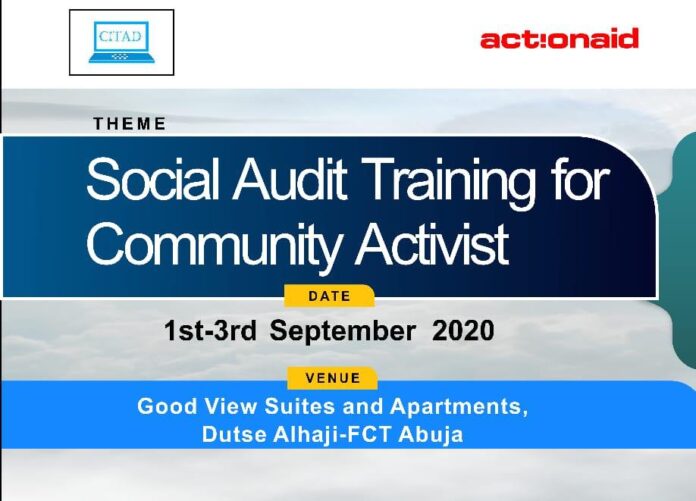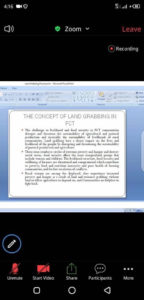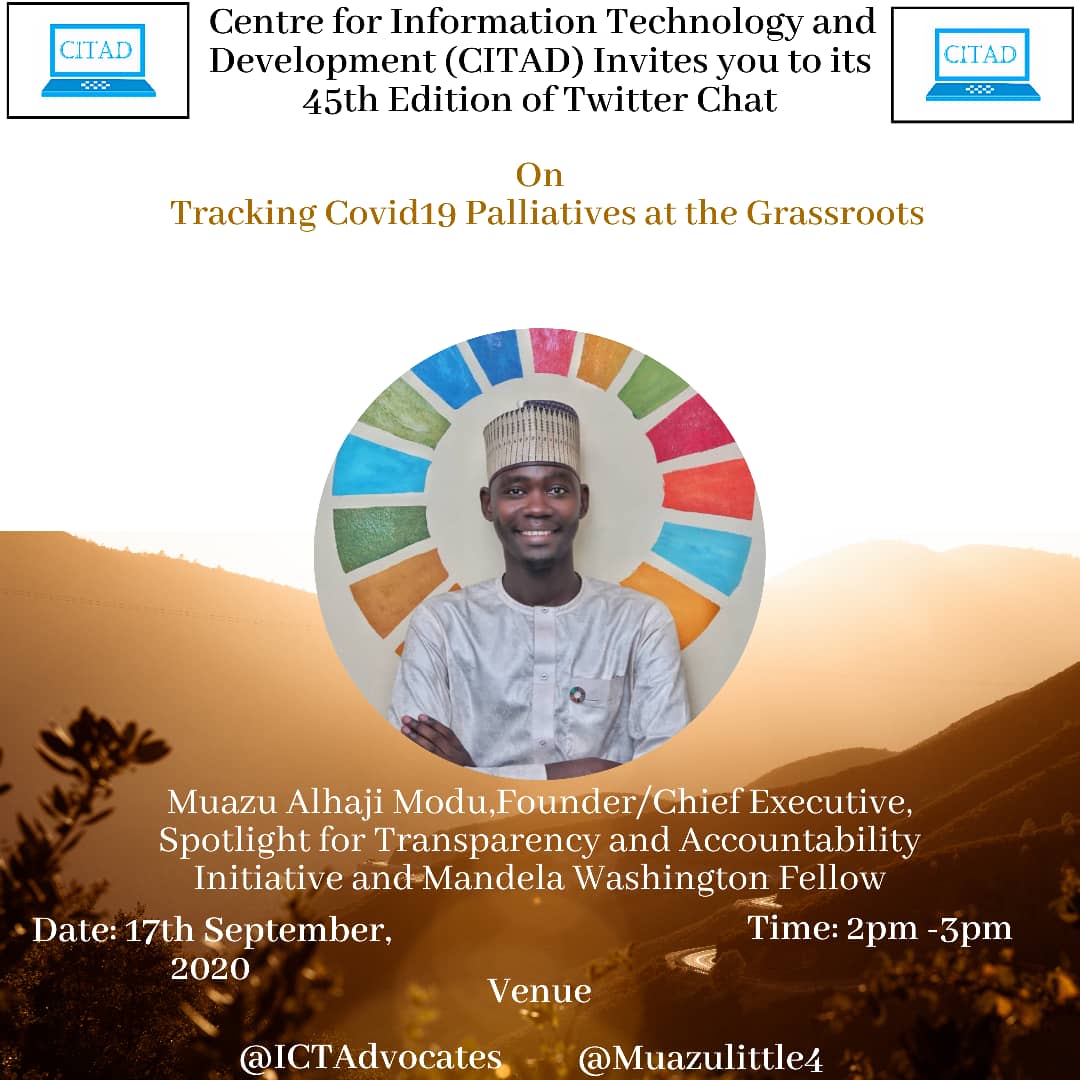
46th Twitter Chat With Muazu Alhaji Modu on Tracking Covid19 Palliatives at Grassroots
The guest was Muazu Alhaji Modu, an Expert in Budget Tracking & Mandela Washington Fellow, who discussed on Tracking Covid19 Palliatives at Grassroots
He started by explaining what tracking of Covid-19 palliative distribution means, he said, tracking Covid-19 palliative distribution in grassroots completely different from normal service delivery tracking. This is extraordinary tracking brought by extraordinary circumstance that require extraordinary measures
In the process of tracking COVID-19 palliative distribution we must ensure COVID-19 protocol & guidelines are been observed which includes social distancing, wearing facemask & restriction of movement & burn on large gathering to curb the spread of COVID-19.
He used Yobe State as example throughout the chat. To ensure compliance with the COVID-19 protocol and guidelines while tracking palliative, the guest stated that they recruited Local government volunteer observers across the 17 LGAs of Yobe State. To monitor distribution of the palliative and compliance with COVID-19 protocol in the distributions in the LGA with strict compliance to COVID-19 protocols. The observers in LGAs Monitored and documented methodology used in the selection of beneficiaries, number of beneficiaries in the LGAs, process of the distribution and compliance with the protocols in distribution across the 17 LGAs and shared with the team
To validate the primary data from LGA observers gathered in the field, he said they write Freedom of information act (FOIA) request to @sema_yobe as an agency responsible for the palliative distribution in the state, Yobe Task Force on COVID19, @officialNEDC office in Yobe State requesting breakdown of fund, food and non-food item donation received by state government, breakdown of palliative distribution and methodology.
He stated the importance of tracking palliatives at the grassroots as ensuring  that palliative reach right beneficiaries and to ensure that right beneficiaries are the once that received  the palliative.
When he was asked on the issue of ensuring protocols are being observed during the distribution looking at how hungry & desperate people are, he said, is the responsibility of government to ensure strict enforcement of the protocol while distributing palliative also, both government and citizens group strengthen advocacy and sensitization on the effect of COVID-19. He further said “there have been a lot of challenges tracking spending on palliative due to lack of authentic data to engage.â€
He advised those willing to follow palliative spending to leverage on Freedom of information Act, to ask question around COVID-19 spending. To ensure that the palliatives are not abused or hoarded, effective use digital technology (social media) to put the distribution process in Spotlight. He emphasized.
Also he stated that they paid advocacy to the relevance authorities like the Executive Secretary @@sema_yobe which is at the same time Secretary of Covid-19 Palliatives distribution Sub-Committee where they further discussed COVID-19 palliative distribution in Yobe state.
At the end he started that the palliative don’t reach to the right people, he cited example with his community in Yobe state, he said, it was four pieces of spaghetti and half mudu of rice in Gwange community, polling unit called KULLOMA it was 19 persons were selected to benefit and these persons is the executive of unit was being selected.
Engagements:
- @a_sabo12
Hello everyone, Do join me in welcoming @Muazulittle4, an Expert in Budget Tracking & Mandela Washington Fellow to
@ICTAdvocates‘s Twitter Chat Series on Covid19 who will be discussing on Tracking Palliatives at Grassroots.
- @Muazulittle4
Tracking covid-19 palliative distribution in grassroots completely different from normal service delivery tracking. This is extraordinary tracking brought by extraordinary circumstance that require extraordinary measures.
As the speaker continues with his presentation there were questions and comments from the participants, these are as follows:
- @a_sabo12
So why do you think it so even important to track these palliatives at the grassroots, sir? - @Muazulittle4 Replying to @a_sabo12
To ensure that right beneficiaries are the once that receive the palliative.
- @Muazulittle4 Replying to @a_sabo12
in the process of tracking COVID-19 palliative distribution we must ensure COVID-19 protocol & guidelines are been observe which includes social distancing, wearing facemask & restriction of movement & burn on large gathering to curb the spread of COVID-19.
- @a_sabo12to @Muazulittle4 @ICTAdvocates and 11 others
Sir, how can we ensure these protocols are being observed during this distribution looking at how hungry & desperate people are?
- @Muazulittle4
Government to ensure strict enforcement of the protocol while distributing palliative Also, both government and Citizen Group strengthen advocacy and sensitization on the effect of COVID-19
- @ChiromaHope
Replying to @Muazulittle4 and @a_sabo12 @Muazulittle4, there have been a lot of challenges tracking spending on palliative due to lack of authentic data to engage. What advice will you give to those willing to follow palliative spending?
- @teemerh_beekay
how do we ensure the palliatives are not abused or hoarded sir twitter.com/muazulittle4/s - @Muazulittle4 replying to @teemerh_beekay & @ChiromaHope
By Effective use digital technology (social media) to put the distribution process in Spotlight
- @Danmliki Replying to @Muazulittle4
How might we break the cycle of corruption in distribution of palliative to affected communities areas @Muazulittle4
J.@Muazulittle4Â Replying to @Danmliki
Most efficient way of break a cycle of corruption is effective use of media (conventional and social) to the process in the Spotlight
- @alhajialimella1 Replying to unblock
@Muazulittle4@a_sabo12and 12 others
Is the palliative get to the right persons?
- @Muazulittle4 Replying to @alhajialimella1
The answer is no. That why we are more concern with methodology of selection and distribution
- Replying to @alhajialimella1 @Muazulittle4 and 13 others
The answer is no no even if yes then it was four pieces of spaghetti and half mudu of rice in my community gwange my polling unit called KULLOMA it was 19 persons were selected to benefit and these persons is the executive of unit is being selected
- @Muazulittle4
Data very is important in the tracking palliative without right data we unable to understand context - Baaba Muhammad Isa Replying to @Muazulittle4
Sir. Is there any punishment set aside for diverting palliatives meant for vulnerables to VIPs?
- Muazu Alhaji Modu (Little)
@Muazulittle4
All punishment set for corruption, the diversion of palliative is another form corruption
- @alhajialimella1
Replying to
So I don’t for them and I think is high time for us to be on our two legs to mitigate these act from happening because indirectly is affecting us cause we are part of the community.
- @Muazulittle4He is strong accountability advocate
@alhajialimella1
adding some more advice!
- @ChiromaHope
Well done @Muazulittle4! On behalf of the E.D, @ICTAdvocates we sincerely thank you for the time and knowledge you shared with us. @YZYau @a_sabo12 @kamalkano #CITADAgainstCovid19
- Muazu Alhaji Modu (Little) @Muazulittle4
Thank you so much for hosting me


